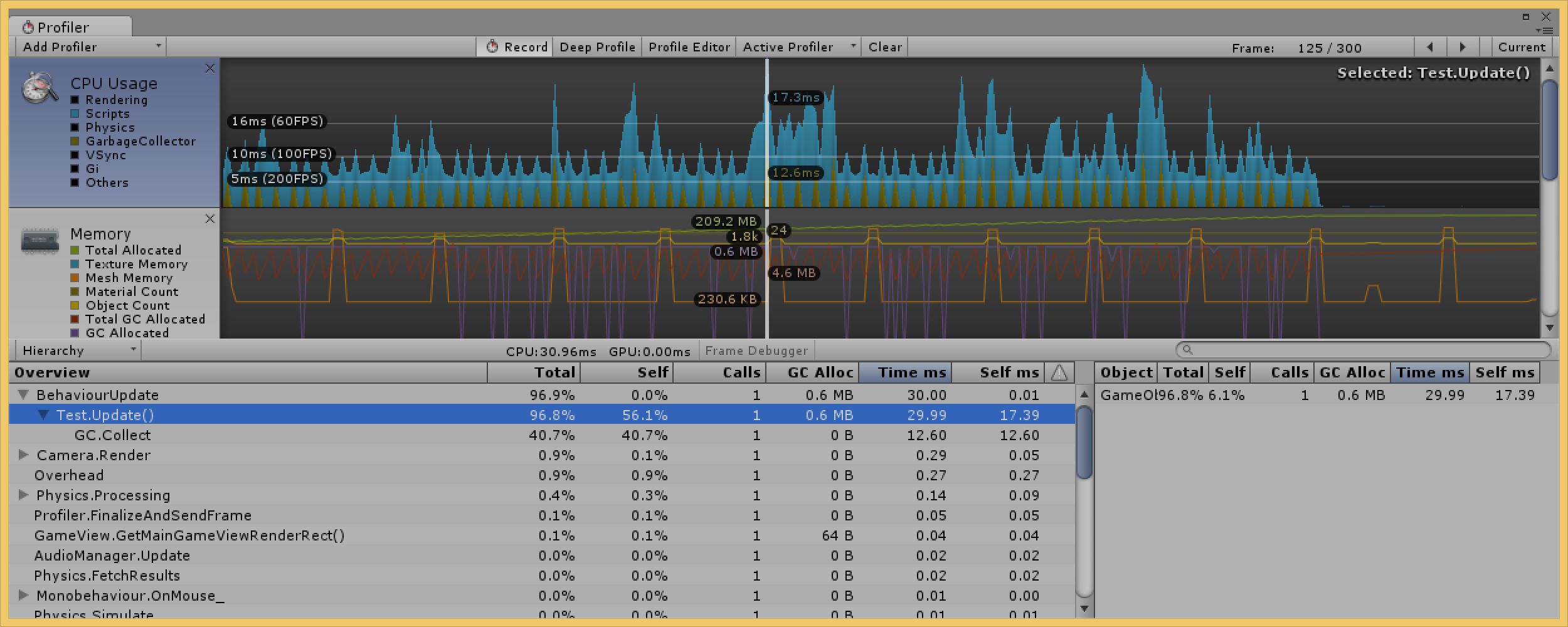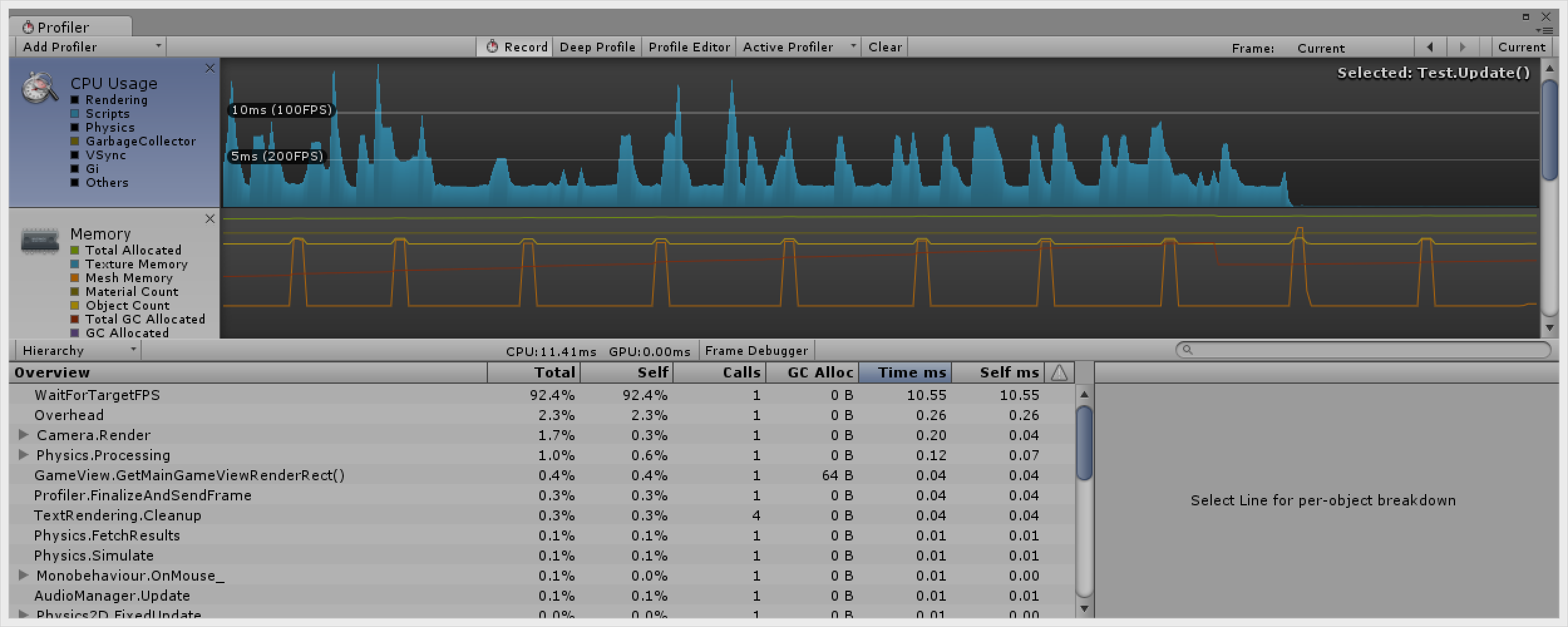Basic, self contained, implementation of Disruptor for Unity3d. Only supports a single producer/single consumer. Only tested on x86 platforms. Bugs in Mono prevent this is working on iOS and Android before Unity 5.5.
Copy RingBuffer.cs into your Unity project's assets folder (or sub-folder) and use the generic RingBuffer class.
For example:
var buffer = new RingBuffer<int>(8);
for (int i = 1; i < 6; ++i)
buffer.Enqueue(i);
for (int i = 1; i < 6; ++i)
buffer.Dequeue();Unity3d is a game engine with Mono embedded in it. The version of Mono inside Unity is very old; it doesnt have the SGen collector and uses the Boehm GC. The Boehm GC does not have great performance.
When working on a Unity project I've found myself in need of a Queue for sending messages between threads. The current version of Mono contains an implementation of ConcurrentQueue.
My game uses a queue pretty intensively. When I want to send a message, it is enqueued to a queue and then subsequently dequeued by another thread, which serializes and sends it. When profiling, I've seen that the queue seems to be the source of the ocasional slow frame because it allocates with every message that is queued. The allocations can cause GC stalls at any time, but sometimes it doesnt doesnt explicitly appear on the profiler (for example, the profiler will show a long time in allocation itself and a reduction in total memory usage).
I wanted to replace the ConcurrentQueue with something that did not have any extra allocation overhead. A circular buffer is a fixed size data structure that could be used in this case. When searching for an existing implementation I remembered the Disruptor; a high performance lockless queue. Disruptor has many good qualities, but in my case, I only care about the lack of allocations.
There is a .Net port of the Disruptor, but it is for .Net 4 which is not supported by Unity and it actually makes some allocations. I did not want to spend the time porting it and I have a very much simpler use case. I don't need most of the functionality.
I've implemented a very simple, self-contained version that uses the volatile long that is key to the implementation. It is intended to be self contained; just drop the source into your project. This project is not intended to rival the functionality of disruptor-net but provide an easy to use drop in queue. If you need a fully featured disruptor library then you should port or check out the forks incase someone has already done it.
I've created a benchmark in Test.cs for my single producer/single consumer RingBuffer. Each frame a batch of random integers are queued. The values are dequeued and discarded by the other thread.
This benchmark is not intended as an example use case or to take performance, but allowed me to profile for allocations.
Note:
- the yellow spikes represent time spent on GC.
- All frames are longer than 5ms some frames are longer than 16ms.
Note:
- No yellow GC spikes
- Most frames are under 5ms, no frames are longer than 16ms.

